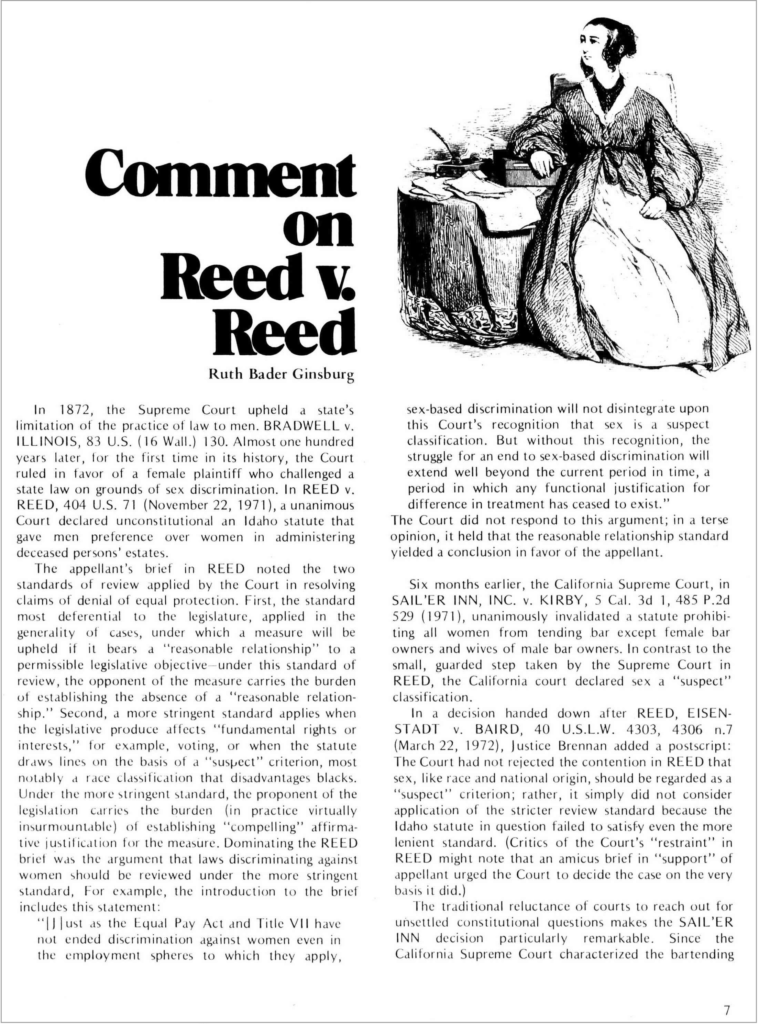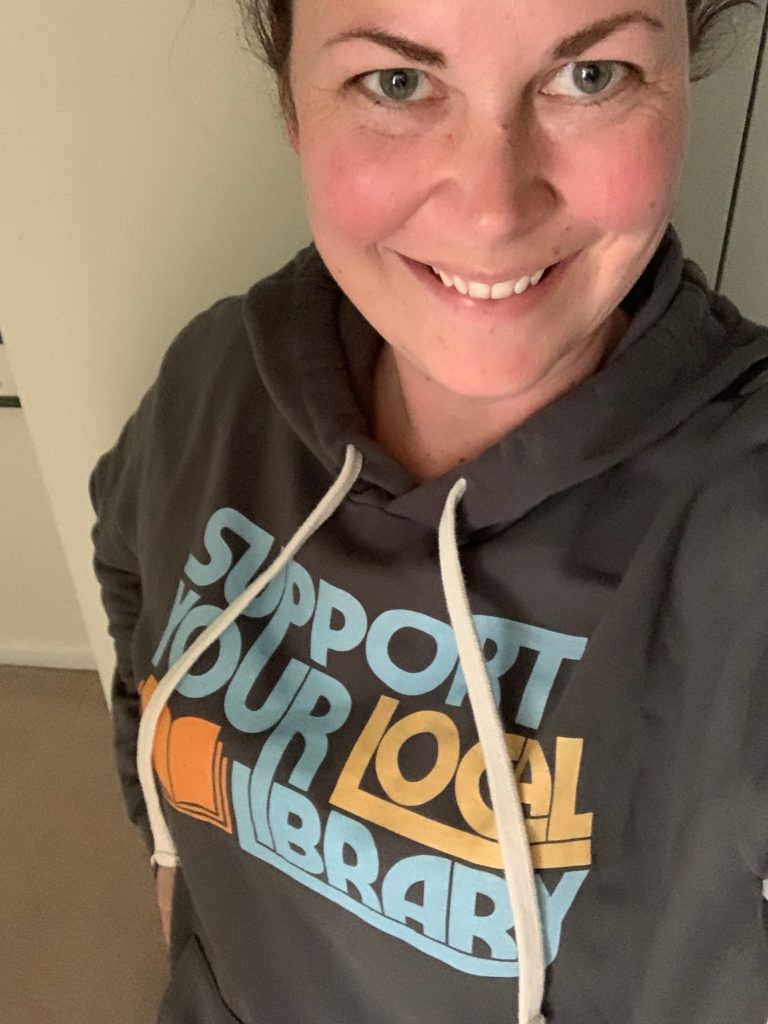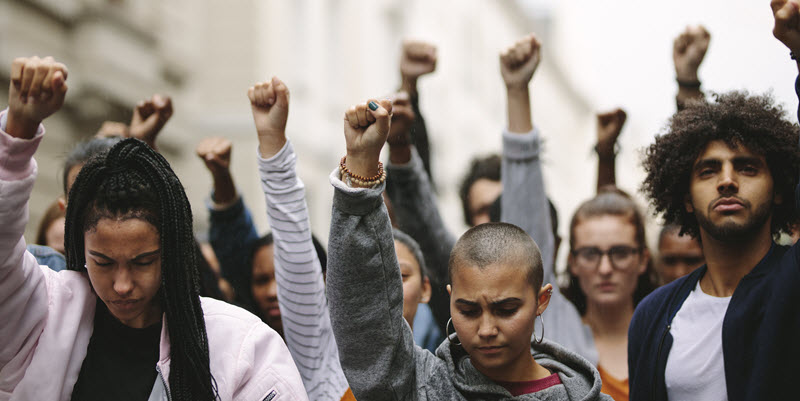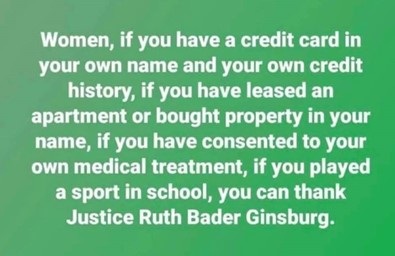| By Harmony Faust |
Landmark cases argued before the SCOTUS and decided from the bench broke new ground
U.S. Supreme Court (SCOTUS) Justice Ruth Bader Ginsburg died on September 18, 2020, at the age of 87, leaving behind a matchless body of work and rulings that have changed the course of history for American women.
A popular meme you may have seen summarizes some of Ginsburg’s contributions and outcomes from her work:
Yet there’s so much more.
As a woman, a mother, an employee, a leader, and a citizen, I have benefitted greatly from Justice Ginsburg’s work to ensure equal treatment in all venues and ventures. This tribute offers a summary of some of her most notable contributions along with opinions shared in her own voice. Supreme Court cases are documented in various Gale resources, such as The Making of Modern Law, other Gale Primary Sources, historical newspapers available from Gale Primary Sources, and many more.
In 1972, signaling her devotion to the vocation she would fulfill, Ginsburg said, “Until now, the United States has not been a pace-setter in the movement for equal rights and responsibilities for men and women. The change on the horizon should be greeted with enthusiasm by all who value the dignity and worth of the human person.”1

“Women’s Rights Law Reporter.” Women’s Rights Law Reporter, vol. 1, no. 2, Spring 1972. Women’s Studies Archive, https://link.gale.com/apps/doc/GGRZOY476130586/GDCS?u=tcreguer&sid= GDCS&xid=725059fe. Accessed 28 Sept. 2020.
Prior to her appointment by President Bill Clinton, Ginsburg worked as general counsel for the ACLU and argued 300 discrimination cases before various courts, six of them before the U.S. Supreme Court, all in support of equality “on the basis of gender”:
- Frontiero v. Richardson (1972), granting married women in military service the same rights and privileges as married men in military service
- Kahn v. Shevin (1974), arguing in favor of equality in granting the same property tax exemption for widowers as for widows
- Weinberger v. Wiesenfeld (1974), in favor of granting the same SocialSCOTUS Security benefits to widowed fathers as widowed mothers
- Edwards v. Healy (1974), in favor of equality in jury service
- Califano v. Goldfarb (1976), arguing against gender-based requirements for Social Security survivor’s benefits (allowing widowers the same benefits as widows)
- Duren v. Missouri (1978), arguing for gender equity in jury service and selection
These cases and those in other courts laid the groundwork for women to gain the freedom to manage their financial and medical affairs independently.
Ginsburg was only the second woman confirmed to the SCOTUS, joining the court in 1993 following a smooth, bipartisan confirmation that took less than two months. Only three senators (Jesse Helms, R, North Carolina; Don Nickles, R, Oklahoma; and Bob Smith, R, New Hampshire) opposed her nomination.2

“Ginsburg Confirmed in Top Court Post.” Financial Times, 4 Aug. 1993, p. 3. Financial Times Historical Archive, https://link.gale.com/apps/doc/HS2305358162/FTHA?u=gale&sid=FTHA&xid=a1a2a9a7. Accessed 28 Sept. 2020.
Her impact on expanding human rights continued while on the bench as she pursued that change on the horizon.
- On gender equality: In 1996, Ginsburg wrote the majority opinion in United States v. Virginia, ruling that Virginia Military Institute could no longer remain an all-male institution, heralding a new era in equal protection cases.
“The remedy proffered by Virginia–maintain VMI as a male-only college and create VWIL as a separate program for women–does not cure the constitutional violation,” she wrote in the majority opinion.
- On equal pay: For the landmark case Ledbetter v. Goodyear Tire & Rubber Co. (2007), Ginsburg dissented the Court’s ruling that did not grant equal pay to the plaintiff. However, a law enacted in 2009 addressed the issue and put measures in place to ensure the right to redress rights to equal pay, even years later.
In her dissent, Ginsburg wrote: “The problem of concealed pay discrimination is particularly acute where the disparity arises not because the female employee is flatly denied a raise but because male counterparts are given larger raises. Having received a pay increase, the female employee is unlikely to discern at once that she has experienced an adverse employment decision. She may have little reason even to suspect discrimination until a pattern develops incrementally and she ultimately becomes aware of the disparity.”
- On immigration: Ginsburg helped overturn the Trump administration’s decision to end the Deferred Action for Childhood Arrivals (DACA) initiative in Department of Homeland Security v. Regents of the University of California (2020) and held with the majority to overturn an Arizona law that made being “undocumented” a state crime and allowed police to check immigration status of persons in custody in Arizona v. United State (2012)
- On reproductive rights: In Gonzales v. Carhart (2007), Ginsburg delivered a dissenting opinion on outlawing a late-term abortion procedure; and in Whole Women’s Health v. Hellerstedt (2016), she voted with the majority to eliminate restrictions to abortion services.
In her dissent for the former case, she wrote, “In candor, the Act, and the Court’s defense of it, cannot be understood as anything other than an effort to chip away at a right declared again and again by this Court—and with increasing comprehension of its centrality to women’s lives.”
With a career focused on establishing equality for all, Ginsburg slowly and persistently made progress that all American women share today. Her commitment and vision for equality was established early in her career and never wavered. Writing in The Congressional Record on February 22, 1977, advocating for the unadopted Equal Rights Amendment, she laid out her vision for gender equality:
“(I)t would serve as a forthright statement of our moral and legal commitment to a system in which neither sons nor daughters are pigeonholed by government because of their sex….(M)ales and females will be free to grow, develop, and aspire in accordance with their individual talents, preferences, and capacities.”
We at Gale—women and men—applaud Justice Ginsberg’s vision and honor her incomparable work to create a more just world.
1 “Women’s Rights Law Reporter.” Women’s Rights Law Reporter, vol. 1, no. 2, Spring 1972. Women’s Studies Archive, https://link.gale.com/apps/doc/GGRZOY476130586/GDCS?u=tcreguer&sid= GDCS&xid=725059fe. Accessed 28 Sept. 2020.
2 “Ginsburg Confirmed in Top Court Post.” Financial Times, 4 Aug. 1993, p. 3. Financial Times Historical Archive, https://link.gale.com/apps/doc/HS2305358162/FTHA?u=gale&sid=FTHA&xid=a1a2a9a7. Accessed 28 Sept. 2020.
Meet the Author

Harmony Faust is the Vice President of Marketing and Communications at Gale. Harmony has partnered with libraries professionally throughout her career and has been a member of Gale’s executive team since 2016. She is often known to evangelize the awesomeness of libraries to unsuspecting strangers and friends; and channels her passion for libraries into her volunteer work, serving on the Board of Directors for EveryLibrary, the only national organization dedicated to building voter support for funding libraries. Harmony lives in Plymouth, Michigan, with her husband, two children, and two dogs. Her opinions are her own.


